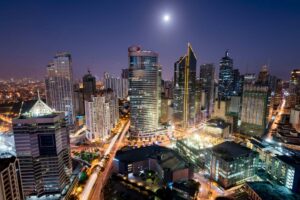FDI inflows slump to 14-month low

FOREIGN DIRECT investment (FDI) net inflows declined for a third straight month in July, slumping to the lowest level in 14 months as investors remained cautious amid elevated inflation and slowing global growth.
Data released by the Bangko Sentral ng Pilipinas (BSP) on Monday showed FDI net inflows fell by 64.4% to $460 million in July from $1.29 billion a year earlier.
This was the lowest monthly FDI inflow recorded since the $455 million posted in May 2021.
Month on month, FDI net inflows dropped by 2.3% from $471 million in June.
“In July 2022, FDI net inflows decreased due largely to the lower non-residents’ net investments in debt instruments of their local affiliates. This decrease more than offset the growth in their net investments in equity capital,” the BSP said in a statement.
By component, non-residents’ net investments in debt instruments of local affiliates plunged by 80.6% to $213 million in July, from $1.093 billion a year ago.
In contrast, investments in equity and investment fund shares rose by 24.7% in July to $248 million.
FDIs in equity capital (other than reinvestment of earnings) surged by 268.2% to $137 million in July from $37 million in the same month last year.
Broken down, equity capital placements jumped by 63.5% annually to $155 million, while withdrawals dropped by 69.1% to $18 million.
For the month, equity placements were mainly from Singapore, Japan, and the United States. These were placed mostly in construction, manufacturing, and real estate industries.
Reinvestment of earnings dropped by 31.4% to $111 million year on year in July, from the $162 million in 2021.
The latest FDI data reflected worries over an expected global recession as many economies are expected to slow down next year, China Banking Corp. Chief Economist Domini S. Velasquez said in a Viber message.
“Tighter financial conditions in major source countries could have contributed to lower FDI. A rising interest rate environment, more pessimistic business environment, and higher cost may refrain foreign companies from investing in the near term,” she said.
Heightened market volatility may have also contributed to the drop in FDI inflows in July, when the US Federal Reserve delivered another large rate hike, Rizal Commercial Banking Corp. Chief Economist Michael L. Ricafort said in an e-mail note.
“(FDI) was also partly weighed (down) by higher inflation and interest rates that are drags to new investments/FDIs globally and locally,” Mr. Ricafort added.
In an off-cycle move, the BSP raised its benchmark interest rate by 75 bps in July, bringing it to 3.25% in an attempt to curb inflation.
Inflation climbed to 6.4% year on year in July, from 6.1% in June and 3.7% a year ago. It was also the fourth straight month that inflation breached the BSP’s 2-4% target.
For the first seven months of the year, total FDI net inflows fell by 12% to $5.101 billion from $5.795 billion during the same period in 2021.
“All major FDI components yielded lower net inflows in January-July 2022 as foreign investors remained cautious amid continued adverse global conditions,” the BSP said.
In the January to July period, foreign investments in debt instruments slipped by 12.6% year on year to $3.555 billion.
Investments in equity and investment fund shares declined by 10.4% to $1.546 billion in the first seven months.
Net foreign investments in equity capital dropped by 13.7% to $876 million. Equity capital placements fell by 21.6% to $977 million, while withdrawals decreased by 56.2% to $101 million.
Most of these placements were from Japan, the United States, Singapore, and Malaysia.
Reinvestment of earnings was down by 5.7% to $670 million in the first seven months of the year.
According to Mr. Ricafort, there may still be an uptick in FDI inflows in the coming months as the Marcos administration secured investment commitments during the President’s visits to Indonesia, Singapore, and United States.
Investors could also become more decisive on expansion projects as the economy further reopens, Mr. Ricafort said.
“As evident in industries that are experiencing positive inflows, such as construction, real estate, and manufacturing, medium-term outlook in the Philippines remain bullish,” Ms. Velasquez said.
The central bank projects FDI net inflows will reach $10.5 billion this year. — Keisha B. Ta-asan




